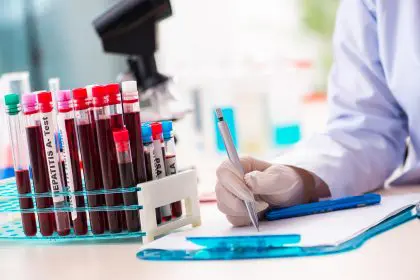The liver works tirelessly as the body’s primary detoxification center, processing everything we consume including alcohol. For those who have been drinking heavily, the liver often becomes overwhelmed and needs focused support to restore optimal function. A gentle five-day reset can provide the foundation for better liver health while helping establish new, healthier patterns.
This approach focuses on supporting the liver’s natural detoxification processes through nutrition, hydration, and lifestyle modifications. The goal is not just temporary cleansing but creating sustainable changes that support long-term liver health and overall wellness.
Understanding liver function and alcohol impact
The liver performs over 500 essential functions, including filtering toxins from the blood, producing bile for digestion, storing nutrients, and metabolizing alcohol. When alcohol consumption exceeds the liver’s processing capacity, it begins to accumulate damage that can affect its ability to perform these vital functions.
Heavy drinking forces the liver to work overtime, converting alcohol into less harmful substances while trying to maintain all its other essential functions. This constant overwork can lead to inflammation, fatty buildup, and decreased efficiency in processing other toxins and nutrients.
A structured reset period allows the liver to focus on repair and regeneration rather than constantly processing alcohol. This break provides an opportunity for the organ to begin healing while the body learns to function without regular alcohol intake.
Day 1: Foundation and hydration focus
The first day centers on establishing proper hydration and beginning the gentle detox process. Start with a large glass of warm water with fresh lemon juice upon waking. This simple combination helps stimulate bile production and supports the liver’s natural detoxification pathways.
Throughout day one, focus on consuming at least 10-12 glasses of pure water to help flush toxins and support kidney function. Herbal teas like dandelion root, milk thistle, or green tea provide additional liver support compounds while contributing to overall fluid intake.
Nutrition on day one should emphasize easily digestible foods that don’t burden the liver. Fresh fruits, steamed vegetables, and lean proteins like chicken or fish provide nutrients without requiring excessive processing. Avoid processed foods, refined sugars, and any substances that could stress the liver during this initial reset phase.
Day 2: Nutritional support and cellular repair
Day two builds on the hydration foundation by introducing specific nutrients that support liver regeneration. Begin with a nutrient-dense smoothie containing spinach, berries, and a small amount of healthy fat like avocado or nuts to support fat-soluble vitamin absorption.
Focus on foods rich in antioxidants and compounds that support liver function throughout the day. Cruciferous vegetables like broccoli and Brussels sprouts contain compounds that enhance the liver’s ability to process toxins. Beets provide betaine, which supports liver cell regeneration and fat metabolism.
Include foods high in B vitamins, which are often depleted in heavy drinkers and essential for proper liver function. Leafy greens, eggs, and legumes provide these crucial nutrients while being gentle on the digestive system. Avoid caffeine after mid-afternoon to support better sleep quality, which is essential for liver repair.
Day 3: Metabolic reset and energy restoration
By day three, many people begin to notice improved energy levels as the body adjusts to functioning without alcohol. This is an ideal time to introduce gentle movement like walking or stretching to support circulation and lymphatic drainage, which assists the detoxification process.
Nutrition on day three should include foods that support stable blood sugar levels, as alcohol withdrawal can cause fluctuations in glucose metabolism. Complex carbohydrates like quinoa, sweet potatoes, and oats provide sustained energy while supporting serotonin production, which can help stabilize mood.
Include foods rich in healthy fats like salmon, walnuts, and olive oil to support cell membrane repair and reduce inflammation. These fats also help with the absorption of fat-soluble vitamins that are crucial for liver function and overall health recovery.
Day 4: Strengthening and stabilizing
Day four focuses on strengthening the progress made while addressing any lingering withdrawal symptoms through nutritional support. This is often when sleep patterns begin to improve, though some people may still experience disrupted rest.
Emphasize foods that support neurotransmitter production to help stabilize mood and reduce cravings. Turkey, pumpkin seeds, and dark chocolate in small amounts provide tryptophan and magnesium, which support calm feelings and better sleep quality.
Continue with liver-supporting foods while adding fermented options like sauerkraut or kefir to support gut health. The gut-liver connection is crucial for overall detoxification, and rebuilding healthy gut bacteria supports long-term wellness and may help reduce alcohol cravings.
Day 5: Integration and future planning
The final day of the reset focuses on integrating the healthy habits established over the previous four days while planning for continued liver support. This is an excellent time to reflect on how the body feels after five days without alcohol and with focused nutritional support.
Continue with the hydration and nutrition patterns established throughout the week while beginning to think about sustainable long-term changes. Consider which foods made you feel best and how to incorporate liver-supporting nutrients into regular meal planning.
Use day five to establish routines that will support continued liver health, such as starting each day with lemon water, including liver-supporting foods in daily meals, and maintaining consistent hydration throughout the day.
Supporting foods for liver health
Throughout the five-day reset, certain foods provide particular benefits for liver function and recovery. Garlic contains sulfur compounds that activate liver enzymes responsible for flushing toxins. Grapefruit provides vitamin C and antioxidants that support the liver’s natural detoxification processes.
Turmeric contains curcumin, which helps reduce liver inflammation and supports the production of bile. Green leafy vegetables provide chlorophyll, which helps neutralize toxins and supports liver function. Avocados contain healthy fats and glutathione, a powerful antioxidant that protects liver cells.
Artichokes contain cynarin, which stimulates bile production and supports liver regeneration. Walnuts provide omega-3 fatty acids and arginine, which help the liver detoxify ammonia. These foods can be incorporated throughout the five-day period and continued afterward for ongoing liver support.
Hydration and herbal support
Proper hydration remains crucial throughout the detox period and beyond. Water helps the kidneys flush waste products that the liver has processed, reducing the overall toxic burden on the body. Herbal teas provide additional support while contributing to overall fluid intake.
Milk thistle tea contains silymarin, a compound that supports liver cell regeneration and protects against damage. Dandelion root tea acts as a gentle diuretic and supports bile production. Green tea provides antioxidants that protect liver cells while supporting overall health.
Avoid alcohol-containing extracts and stick to tea preparations during the detox period. These herbal supports can be continued long-term as part of a liver-healthy lifestyle, though it’s wise to rotate different herbs rather than relying on just one type.
Managing withdrawal and discomfort
The five-day period may involve some discomfort as the body adjusts to functioning without regular alcohol intake. Common experiences include sleep disruption, mood changes, and physical discomfort. These symptoms typically peak within the first 72 hours and begin to improve afterward.
Nutritional support can help minimize discomfort during this adjustment period. Magnesium-rich foods like leafy greens and nuts can help reduce anxiety and support better sleep. B-complex vitamins found in whole grains and vegetables help support nervous system function during the transition.
Gentle movement like walking or stretching can help reduce physical tension and support circulation. Adequate rest is crucial, even if sleep quality is temporarily disrupted. Creating a calm, supportive environment helps the body focus energy on healing and recovery.
Building sustainable habits
The five-day reset serves as a foundation for longer-term changes that support liver health and overall wellness. Use this period to identify which foods and habits make you feel best, then work to incorporate these elements into daily life beyond the detox period.
Consider establishing regular meal times with liver-supporting foods, maintaining consistent hydration habits, and finding enjoyable forms of physical activity. These lifestyle changes support not just liver health but overall wellness and can help reduce the desire to return to heavy drinking patterns.
Building a support system of friends, family, or support groups can provide encouragement for maintaining healthy changes. Professional guidance from healthcare providers can offer additional support for those dealing with alcohol dependence or liver health concerns.
Long-term liver health maintenance
After completing the five-day reset, focus on maintaining the positive changes while gradually expanding food choices and activities. Continue prioritizing hydration, liver-supporting foods, and regular movement while being mindful of substances that could burden the liver.
Consider implementing regular reset periods, such as a monthly three-day liver support phase or weekly alcohol-free days, to maintain the benefits achieved during the initial five-day period. These ongoing practices help prevent the accumulation of toxins and support continued liver health.
Remember that liver health is closely connected to overall wellness, including sleep quality, stress management, and emotional well-being. Addressing these areas comprehensively supports the best outcomes for liver function and overall health. The five-day reset provides a starting point for a healthier relationship with alcohol and better liver care practices that can last a lifetime.













